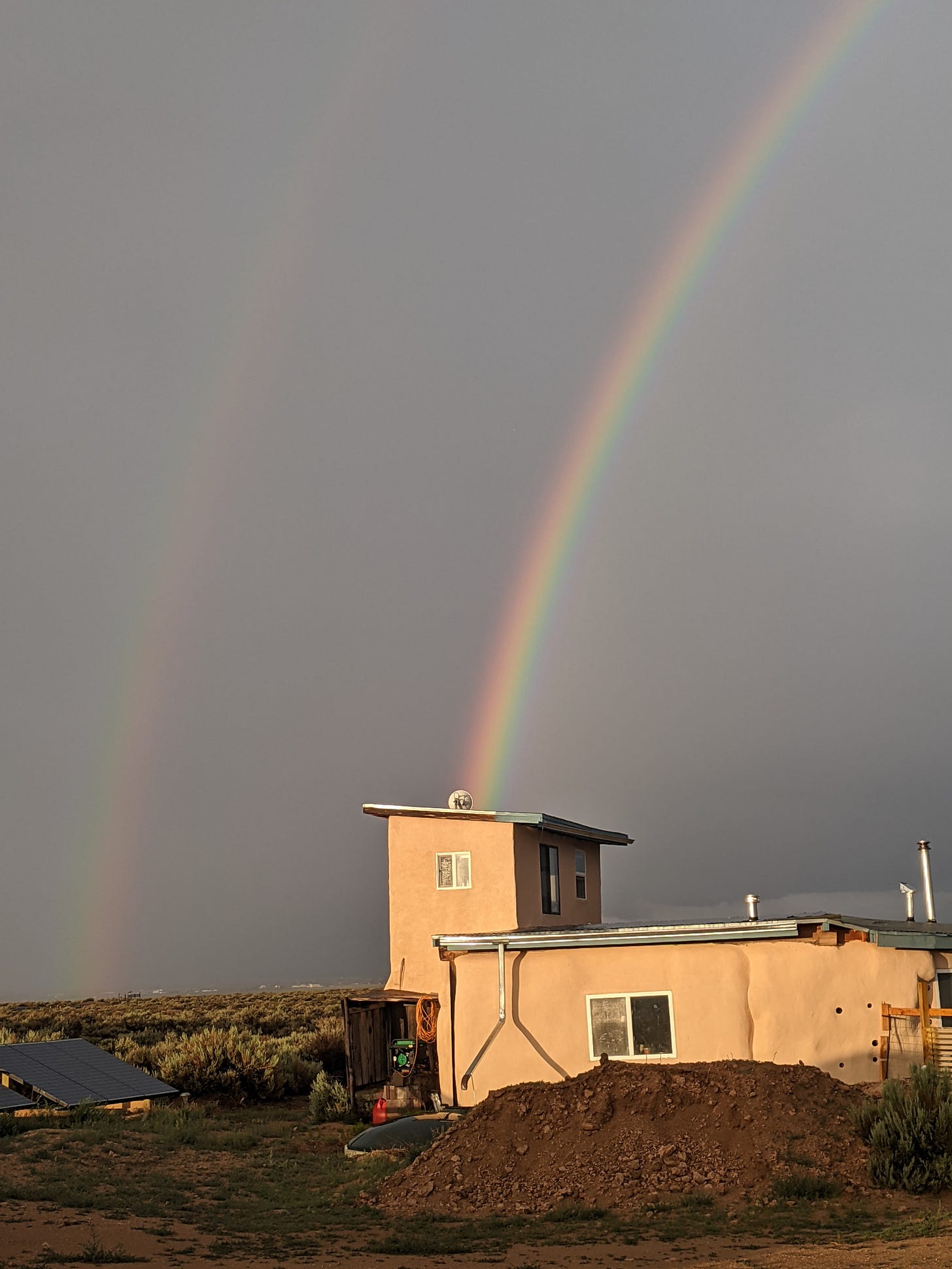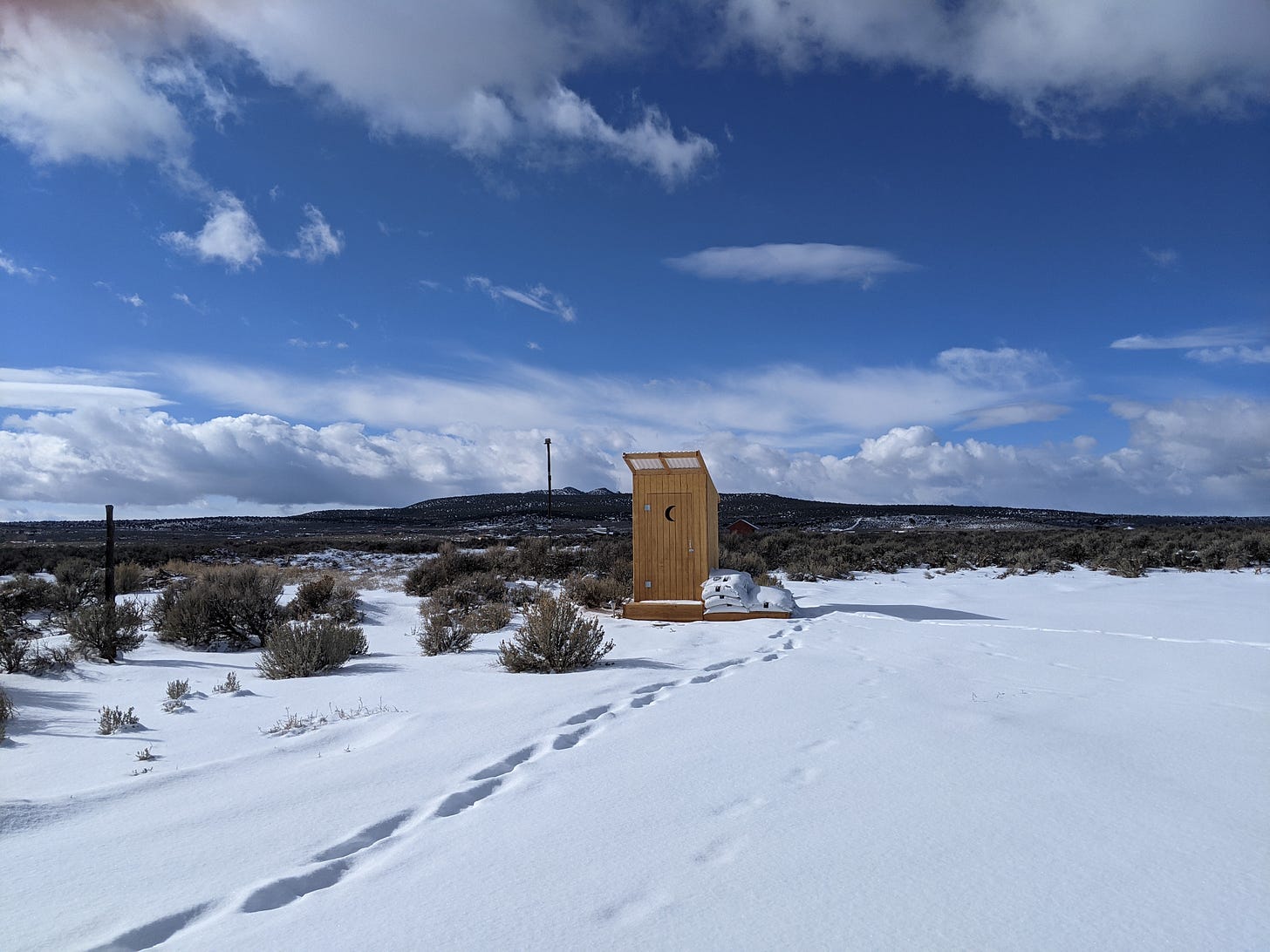Our Move Off-Grid Paid For Itself in Under Three Years. Here's How and Why
Big moves are not without risk, however.
Note: This week, NPR show Here and Now out of Boston is airing a series on different natural or unique building styles in New Mexico (yes, they covered Earthships) and they took the time to speak with me about living off the grid. Welcome if you’ve landed here via WBUR or NPR!
The conversation on Here and Now was inspired by this story from my CNET series focused on the costs and savings involved in living off-grid.
Both in the interview and the CNET piece there’s talk of the cost of solar panels, eliminating utility bills, etc… But there are some big numbers in terms of savings that I’ve never shared because, well… nobody has ever asked or really had the time and space to get into some of the nitty gritty details of our individual and unique situation.
The big number is about $36,000.
This figure represents two things: the amount we paid for our funky, unfinished, off-grid house with just enough space for our little family (barely); and two-and-a-half years of rent at the house we were living in before we made the jump off grid (realistically just two years given how rent has skyrocketed here).
In other words, it took two years for our off-grid experiment to pay for itself (at least the initial purchase price) in terms of savings in a housing and rental market that has gone completely bananas in much of the western United States since 2020. At this point, over four years since moving out of our rental at the end of a cul-de-sac, those savings on rent now also cover the full cost of getting solar electric and plumbing systems up and running, adding a shed, a mud room, porch and second outdoor “bathroom.”
This has made moving off-grid probably the smartest investment we’ve ever made. But like almost any investment, it isn’t done without risk. The notion of getting a home for the price of a new car surely seems insane and unusual. This is because it comes with a certain risk. In our case, the risk was buying a residence that’s not just off-grid, but it also came without title insurance.
A title search for a number of properties in our community makes it seem as though they magically sprang into existence in the early 1960s. The paperwork and other records just simply aren’t there. It’s not clear why. I’ve heard a fire at the county facilities blamed, or that papers were otherwise lost or misplaced. Our community also has a bit of a colorful history that might be (and probably is) a factor.
Why am I boring you with all this? The bottom line, I suppose, is that there is a non-zero chance someone turns up one day with a deed from 1915 or something similar to declare they own all lands west of the Rio Grande Gorge, including our home.
In reality, this would likely lead to a very long and convoluted court battle and/or armed resistance from some of our more, um… eclectic and animated community members. It’s also been over 50 years now that people have been moving to this place and settling, regardless of the chain of title questions.
I don’t really worry about any of the aforementioned worst case scenarios coming to pass, but they are part of the reason that our home was so cheap in the first place.
Nonetheless, the fact that living here has now paid for itself is still some amount of comfort. Not only are we now living rent and mortgage free, we also have acquired the skills and experience to start a new homestead from scratch, which will be helpful in case we ever get thrown off this one by the ghosts of the past.



